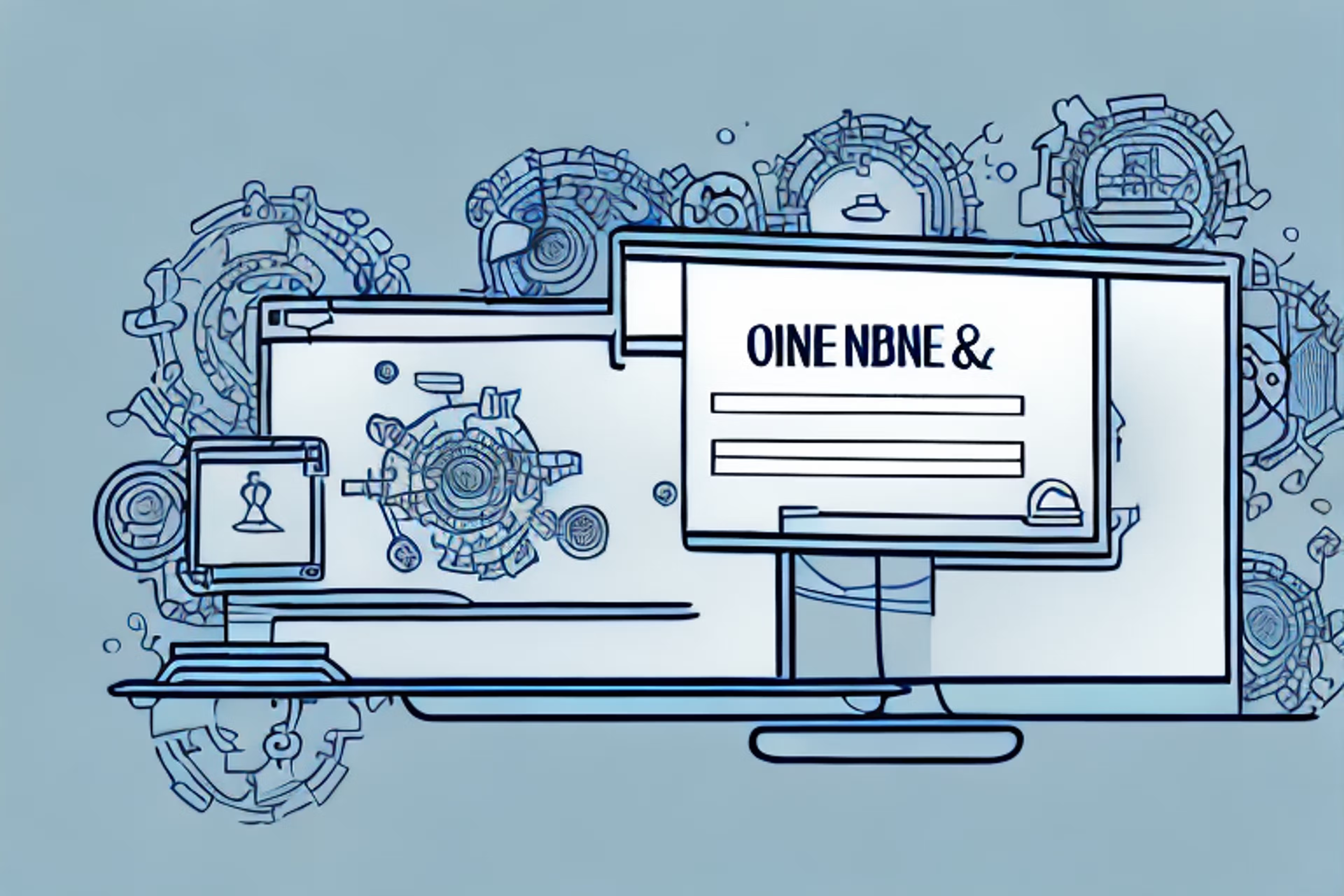Everything You Need to Know About Hybrid JD Programs
Discover the ins and outs of hybrid JD programs in this comprehensive guide. Learn about the benefits, drawbacks, and how to choose the right program for you.
Posted April 10, 2025

Table of Contents
Are you considering pursuing a legal education but are unsure of whether a traditional in-person program or an online program is right for you? If so, you may want to explore the benefits of hybrid JD programs. In this article, we will delve into what hybrid JD programs are, how they work, and how they compare to traditional programs.
What is a Hybrid JD Program?
A hybrid JD program combines both online coursework and in-person classes and experiences. Students in a hybrid program have the flexibility to complete some of their classes online, while still being able to attend on-campus classes, networking events, and other in-person opportunities.
Hybrid JD programs are becoming increasingly popular among law students who want to balance their academic pursuits with work or family obligations. These programs offer a more flexible schedule, allowing students to complete their coursework at their own pace while still receiving the benefits of in-person learning. Additionally, hybrid programs often have a lower cost than traditional on-campus programs, making them an attractive option for students who want to save money on tuition and other expenses.
Benefits of a Hybrid JD Program
One of the key benefits of a hybrid JD program is flexibility. With the ability to take some courses online, students can balance their legal education with other obligations, such as work or family responsibilities.
Moreover, students in hybrid JD programs are able to maintain a sense of community with their peers and professors. While online learning can be isolating, hybrid programs allow students to meet with their fellow classmates and professors in-person, which can foster connections and help build relationships.
Another advantage of a hybrid JD program is the opportunity to gain practical experience through internships and externships. Many hybrid programs offer students the chance to work with law firms, government agencies, and non-profit organizations, providing them with hands-on experience in the legal field. This experience can be invaluable when it comes to securing employment after graduation.
How Do Hybrid JD Programs Work?
Hybrid JD programs vary depending on the institution and program. However, most hybrid JD programs require students to complete a mixture of online coursework and in-person requirements. Online coursework is typically delivered asynchronously, meaning students can complete their work on their own time. In-person components may include weekend or evening classes, residency sessions, and legal clinic experiences.
Additionally, hybrid JD programs often offer students the opportunity to specialize in a particular area of law. This may involve taking additional courses or participating in specialized clinics or externships. Some programs also offer the option to complete the program on a part-time basis, allowing students to continue working while pursuing their degree.
Types of Hybrid JD Programs Available
There are several different types of hybrid JD programs available to students. Some programs require students to complete a certain number of online classes or hours, while others may require students to attend a certain number of on-campus residencies or legal clinic experiences. Additionally, some programs may allow students to choose between online or in-person classes for specific courses based on their preferences and schedule.
Another type of hybrid JD program is one that combines a traditional law degree with a specialized degree in another field, such as business or healthcare. These programs allow students to gain expertise in both areas and can lead to unique career opportunities. Additionally, some hybrid JD programs may offer accelerated options, allowing students to complete their degree in a shorter amount of time than a traditional law program.
Comparison of Traditional vs. Hybrid JD Programs
There are both pros and cons to traditional in-person JD programs and hybrid JD programs. Traditional programs offer the benefits of in-person instruction, face-to-face interactions, and networking opportunities. However, these programs may not offer the same level of flexibility as hybrid programs, which can be particularly challenging for students with work or family obligations. Additionally, traditional programs often require students to relocate to attend law school, which can be expensive and disruptive.
Hybrid JD programs, on the other hand, offer the flexibility of online learning, while still allowing students to retain some of the benefits of in-person instruction and networking. However, some students may miss the regular in-person interactions with their classmates and professors, which can be critical for building relationships and connections in the legal industry.
Another factor to consider when comparing traditional and hybrid JD programs is the cost. Traditional programs may have higher tuition fees due to the cost of maintaining physical facilities and providing in-person instruction. On the other hand, hybrid programs may have lower tuition fees since they do not require as much physical infrastructure. However, students in hybrid programs may need to invest in additional technology and equipment to participate in online classes effectively. It is important for students to weigh the costs and benefits of each program type before making a decision.
How to Choose the Right Hybrid JD Program for You
Choosing the right hybrid JD program requires careful consideration of your personal preferences and career goals. Some factors to consider include the program's curriculum, flexibility, cost, and reputation. Consult with academic advisors and current students to gather more information about specific programs and institutions.
It is also important to consider the location of the program and the opportunities it may provide for networking and internships. Some hybrid JD programs may offer opportunities to work with law firms or government agencies in the area, providing valuable hands-on experience and potential job connections. Additionally, consider the program's focus areas and whether they align with your interests and career aspirations.
Requirements for Admission into a Hybrid JD Program
The requirements for admission into a hybrid JD program vary depending on the institution. However, most programs require applicants to have a bachelor's degree from an accredited institution and have completed the LSAT or GRE. Some programs may also require work experience or additional supplemental applications.
In addition to the basic requirements, some hybrid JD programs may have specific prerequisites that applicants must fulfill before being considered for admission. For example, some programs may require applicants to have completed certain undergraduate courses, such as constitutional law or legal writing.
Furthermore, many hybrid JD programs place a strong emphasis on work experience and may require applicants to have a certain number of years of professional experience in a related field. This is particularly true for programs that cater to working professionals who are looking to advance their careers in the legal field while continuing to work full-time.
Cost of a Hybrid JD Program: Is it Worth It?
The cost of a hybrid JD program varies depending on the institution and program length. However, hybrid JD programs are generally less expensive than traditional in-person programs, largely due to the flexibility of online learning. When considering the cost of a program, it is important to also consider the potential return on investment in terms of future career opportunities and earning potential.
Additionally, hybrid JD programs often offer students the opportunity to continue working while pursuing their degree, which can offset the cost of tuition and living expenses. This can be especially beneficial for students who have already established themselves in their careers and may not want to take a break from work to attend a traditional law school program. Furthermore, hybrid JD programs may offer specialized courses and networking opportunities that can enhance a student's legal education and career prospects.
Career Opportunities Available with a Hybrid JD Degree
Graduates of hybrid JD programs have a wide range of career opportunities available to them, just like graduates of traditional in-person programs. Some common career paths for JD holders include practicing law, working in government or non-profit organizations, or pursuing careers in business or academia. The versatility of the JD degree makes it a valuable asset in many different industries and professions.
One unique advantage of a hybrid JD degree is the opportunity to gain practical experience while still in law school. Many hybrid programs offer externship or internship opportunities, allowing students to work with practicing attorneys and gain hands-on experience in the legal field. This experience can be invaluable when seeking employment after graduation.
Additionally, hybrid JD programs often attract a diverse group of students from different backgrounds and professions. This diversity can lead to unique networking opportunities and the chance to build connections with professionals in a variety of industries. Graduates of hybrid JD programs may find themselves with a wider range of career options and a stronger professional network than those who attended traditional in-person programs.
Top Law Schools Offering Hybrid JD Programs
Several top law schools offer hybrid JD programs, including Syracuse University College of Law, Mitchell Hamline School of Law, and Vermont Law School. These programs offer students the best of both worlds - the flexibility of online learning and the benefits of in-person instruction and networking.
Hybrid JD programs are becoming increasingly popular among law students, as they allow for a more personalized and flexible learning experience. In addition, these programs often have lower tuition costs and can be completed in a shorter amount of time than traditional JD programs.
One of the key advantages of hybrid JD programs is the ability to balance work and family obligations with law school. Students can complete coursework online, at their own pace, while still having access to in-person instruction and networking opportunities. This makes it easier for students to maintain a healthy work-life balance while pursuing their legal education.
Success Stories from Graduates of Hybrid JD Programs
Graduates of hybrid JD programs have found success in a wide range of legal careers. Alumni from Syracuse University College of Law's hybrid program have landed jobs at top law firms and in-house legal departments, while graduates from Mitchell Hamline School of Law's hybrid program have started their own solo practices. The flexibility of these programs has allowed graduates to pursue their passions and develop skills in a way that fits their lifestyles and career goals.
Challenges Faced by Students in a Hybrid JD Program and How to Overcome Them
Students in a hybrid JD program face unique challenges, such as balancing their online coursework with in-person requirements and maintaining a sense of community with their peers. To overcome these challenges, it is important for students to be proactive and engaged in their program, setting aside dedicated time for online coursework and actively participating in in-person classes and experiences.
Future of Legal Education: The Role of Hybrid JD Programs
The future of legal education is likely to continue to incorporate online and hybrid learning models. The COVID-19 pandemic has accelerated this trend, as many law schools have had to shift to online instruction. Hybrid JD programs offer a viable alternative to traditional programs, allowing students to balance their legal education with other obligations and positions them to be successful in the ever-changing legal industry.
Whether you're a recent graduate considering a career in law or a seasoned professional looking to enhance your legal knowledge and career opportunities, a hybrid JD program may be the right choice for you. Consider the benefits and challenges of these programs and do thorough research before choosing the program that is right for you.











